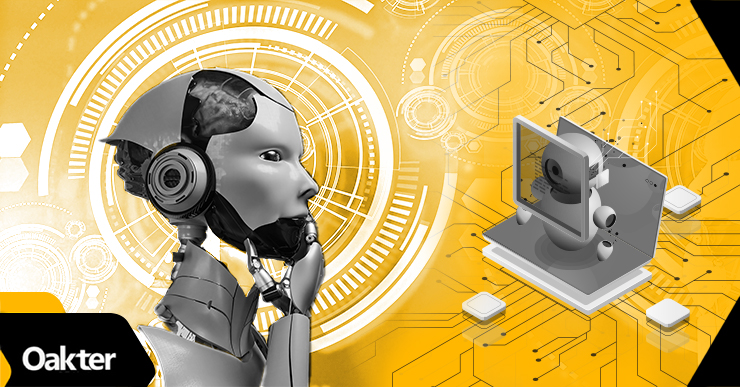
The Impact of Industry 4.0 on Electronic Manufacturing in India
Industry 4.0 is becoming increasingly popular due to the recent advancements in cyber-computing.
Collectively, there has been a noticeable decrease in the gap between the digital and physical realms due to innovations like the Internet of Things (IoT) and artificial intelligence (AI). These technologies offer a compatible platform between information technology (IT) and real-world operations, permitting seamless assimilation and communication.
Industry 4.0 already influences sectors such as supply chain management, shipping, construction, shipping, manufacturing, especially electronic manufacturing in India, etc., and shall impact all our day-to-day activities. It is regarded as a disruptive technology.
Let’s take a closer look.
What is Industry 4.0?

The Fourth Industrial Revolution, or Industry 4.0, is the next stage in the digitalisation of the industrial sector. It is fueled by disruptive developments such as the growth of data and connectivity, analytics, human-machine interaction, and advancements in robotics.
Industry 4.0 tends to make everything in the supply chain “smart” – from smart manufacturing and factories to smart warehousing and logistics.
Nevertheless, Industry 4.0 goes beyond the supply chain. It interfaces with back-end systems like enterprise resource planning (ERP) to provide businesses with an unheard-of degree of visibility and control. It is ultimately a key component of every company’s digital transition.
Although Industry 4.0 has the potential to alter the industry in several ways, its influence on electronic manufacturing in India is considerable and far-reaching.
Impact of Industry 4.0 on Electronic Manufacturing in India
India’s electronic manufacturing has immensely benefited from Industry 4.0, which has sparked innovation, improved productivity, and opened up new development prospects.
1. Adoption of Sophisticated Manufacturing Technology
The introduction of sophisticated manufacturing technology has been one of Industry 4.0’s most significant effects on electronic manufacturing in India.
For instance, automation, robots, and AI have enhanced productivity and reduced production expenses.
Indian electronics manufacturers can automate repetitive and labour-intensive processes owing to the use of high-end automation and robotics, which boost production efficacy, decrease labour costs, and expand production capacity.
Hence, they have satisfied the global market’s needs while preserving their competitiveness and boosting their profitability.
Furthermore, Indian manufacturers have been able to streamline operations, decrease waste, and enhance product quality owing to the application of artificial intelligence in creating electrical items.
2. Transition towards Smart Manufacturing
The transition to “smart manufacturing,” which uses sensors and data analytics to monitor and improve production processes, is another impact of Industry 4.0 on electronic manufacturing in India.
This has led to improvised product quality, elimination of defects and waste, and augmented productivity.
Data analytics and sensors have also enabled electronic manufacturers to better monitor production in real-time, identify logjams, and improve production workflows. This has aided manufacturers in speeding up manufacturing, reducing defects, and increasing the general standard of their products.
Automation has also helped to reduce the need for human involvement in the production process, eliminate waste, and lower wage costs.
Overall, Industry 4.0 technology has allowed electronic firms in India to stay competitive in a fast-expanding global market.
3. New Business Models and Partnerships
New business models and alliances in electronic manufacturing in India have also emerged due to Industry 4.0.
For instance, businesses are working more closely with clients, suppliers, and other partners to exchange data and increase the effectiveness of the supply chain. As a result, new business models like “servitisation,” in which businesses provide value-added services like maintenance, repair, and products, have emerged.
Also, Industry 4.0 has made it possible to build online markets where suppliers and buyers may easily interact and do business. Hence, manufacturers have abundant opportunities to reach new clientele and capture a bigger market size.
Overall, it has changed how businesses operate together and function, which has boosted productivity, innovation, and growth.
Some Challenges of Industry 4.0 for Electronic Manufacturing in India
Despite its benefits, industry 4.0 also comes with some challenges. For example:
1. Shortage of Highly Qualified Workers
A highly skilled workforce is necessary to oversee and utilise the new technologies included in Industry 4.0. Yet, a significant obstacle is the lack of trained people in India’s electronic manufacturing sector.
2. High implementation costs
The adoption of Industry 4.0 necessitates a large investment in cutting-edge infrastructure, technology, and training. The high implementation costs are a significant obstacle for India’s small and medium-sized electronics businesses.
3. Privacy and Security Concerns
Data security and privacy concerns, particularly cybersecurity threats, pose a severe problem to electronic manufacturing in India.
4. Infrastructure Challenges
India continues to experience infrastructure issues, including transportation, Internet connectivity, and power supply, which may prevent Industry 4.0 from being adopted rapidly.
5. Regulation-Related Challenges
Data privacy and security regulations may make it difficult to use Industry 4.0 technology. The lack of clear restrictions might generate uncertainty and inhibit the adoption of new technologies.
Conclusion
India has seen a significant impact from Industry 4.0, with essential advantages such as enhanced production, efficiency, and innovation.
However, Electronic manufacturing in India faces several difficulties when implementing Industry 4.0 technologies. Yet, India can establish itself as a pioneer in modern manufacturing technologies with the correct investments in infrastructure, training, and legal frameworks.
Using industrial automation, Oakter’s EMS Manufacturing services help OEMs working on the frontier of innovation complete the cycle from concept to full-scale manufacture.
The products offered include anything from a battery technology, linked electronics development, and full-stack Internet of Things (IoT) software development. We currently ship 500k+ products every month.
Start a conversation, and bring efficiency and quality to your manufacturing outcomes.

